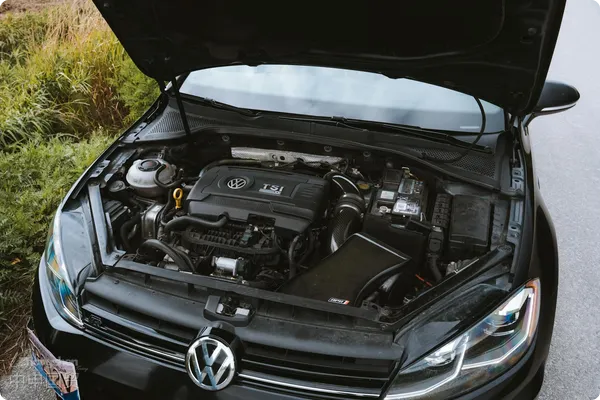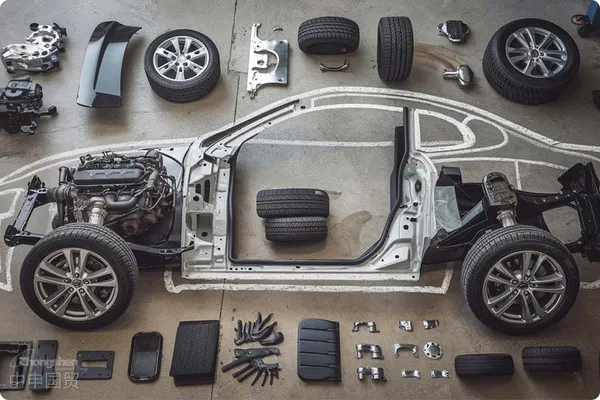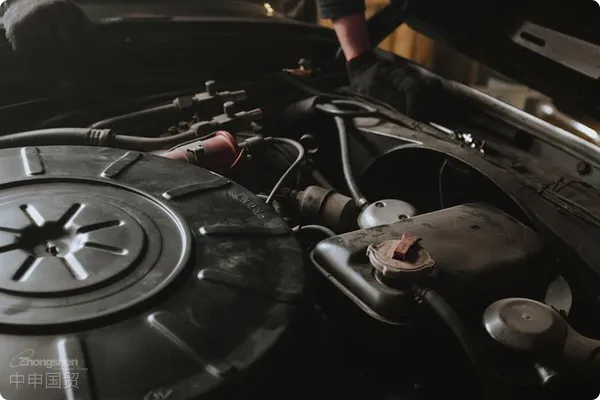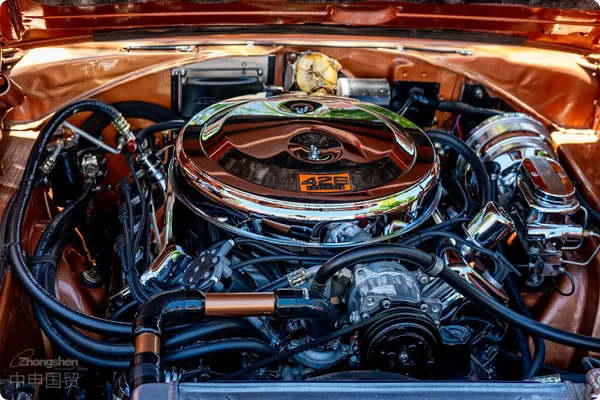- Shanghai Zhongshen International Trade Co., Ltd. - Two decades of trade agency expertise.
- Service Hotline: 139 1787 2118
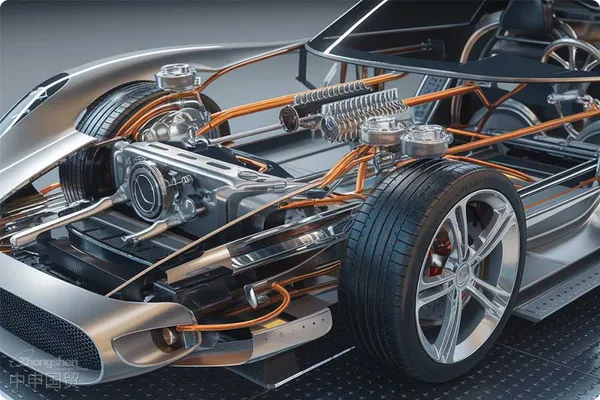
agents serve asExport Clearancea crucial link in this field, providing professional customs clearance services to help companies successfully complete export procedures. This article will focus on the keyword auto parts export customs clearance agency to provide detailed explanations of relevant content.foreign tradeAccording to industry reports, the auto parts export market has shown steady growth in recent years. With the continuous increase in vehicle ownership, demand for auto parts continues to rise. Meanwhile, government support policies for the automotive industry in various countries have created favorable development conditions for auto parts exports. However, auto parts export customs clearance involves complex legal regulations and procedures, making the choice of professional customs clearance agencies particularly important for enterprises.
I. Industry Conditions
II. Concept of Auto Parts Export Customs Clearance Agency
Auto parts export customs clearance agency refers to the service where enterprises entrust professional customs clearance agencies to handle export customs clearance procedures for auto parts products. These agencies possess extensive customs clearance experience and professional knowledge, helping companies accurately understand clearance procedures and relevant regulations to ensure smooth completion of customs formalities.
III. Operational Process of Auto Parts Export Customs Clearance Agency
: The enterprise signs a commission contract with the customs clearance agency, clarifying the rights and obligations of both parties. The contract should include basic information such as the agencys service content, fee standards, and liability for breach of contract.
1. Sign the ContractExample: An auto parts company signed a contract with a customs clearance agency, stipulating that the agency would handle all export customs clearance procedures for the companys auto parts products, including filling out customs declarations, preparing documents, and communicating with customs. The contract also specified the agencys service fee as 10% of each customs clearance cost, along with specific terms regarding liability for breach of contract.
: The customs clearance agency prepares relevant customs documents based on the product information provided by the enterprise, including customs declaration forms, invoices, contracts, packing lists, and inspection certificates.
2. Prepare documentsExample: The customs clearance agency prepared customs declaration forms, invoices, contracts, and packing lists based on the product list provided by the auto parts company. The customs declaration form detailed product names, quantities, values, and origins; the invoice noted product prices and payment methods; the contract clarified the rights and obligations of both buyer and seller; and the packing list recorded packaging details and weights.
: The customs clearance agency submits the prepared documents to customs for declaration. Customs reviews the documents and may request supplements or corrections if issues are found.
3. Declaration and Customs ClearanceExample: The customs clearance agency submitted the prepared documents to customs via an electronic declaration system. After review, customs found an error in the product value on the declaration form and requested correction. The agency promptly communicated with the enterprise, revised the declaration form, and resubmitted it to customs.
: Based on the document review results, customs determines the applicable tariff rate and amount. The customs clearance agency assists the enterprise in paying the tariffs.
4. If the goods need to pay customs duties, the export enterprise needs to pay the customs duties as required by the customs. The calculation methods of customs duties include ad valorem and specific duty. Ad valorem means calculating customs duties according to the value of the goods, and specific duty means calculating customs duties according to the quantity of the goods.Example: After review, customs determined a 10% tariff rate for certain auto parts, amounting to 1,000 yuan. The customs clearance agency assisted the enterprise in paying the tariff via bank transfer and submitted the payment receipt to customs.
: Customs inspects the goods to verify their authenticity and legality. The customs clearance agency assists the enterprise in cooperating with the inspection by providing relevant product information and documents.
5. customs inspectionExample: Customs inspected goods from an auto parts company and requested a detailed product list and quality certification documents. The customs clearance agency promptly contacted the enterprise, provided the necessary documents, and assisted in coordinating the on-site inspection with customs officers.
: After passing inspection, customs releases the goods. The customs clearance agency notifies the enterprise of the release, allowing the enterprise to arrange transportation and delivery.
6. After the customs reviews and inspects the declared goods, if the goods meet the relevant regulations, the customs will release the goods. The ways of releasing goods include direct release and clearance release. Direct release means that the customs directly releases the goods, and clearance release means that the customs conducts clearance processing on the goods and then releases them.Example: After passing inspection, customs released goods from an auto parts company. The customs clearance agency promptly notified the enterprise of the release, enabling the enterprise to arrange transportation and deliver the goods to the overseas client.
IV. Considerations for Auto Parts Export Customs Clearance Agency
: Both enterprises and customs clearance agencies should understand relevant laws and regulations for auto parts exports, including tariff policies, inspection requirements, and trade restrictions. Compliance with these regulations is essential for smooth customs clearance.
1. Understand relevant regulationsExample: An auto parts company exporting a batch of goods was unaware of trade restrictions in the destination country, resulting in customs detention. The customs clearance agency promptly communicated with the enterprise, clarified the relevant regulations, and assisted in completing necessary procedures, ultimately securing the release of the goods.
Accurate declaration of product information
2. : Product information in customs documents must be accurate, including names, quantities, values, and origins. Honest declaration is key to avoiding customs inspections and penalties.Example: A customs clearance agency underdeclared the value of a batch of auto parts, triggering a customs inspection. After communicating with the enterprise, the agency corrected the declaration form and provided proof of the actual value, ultimately securing the release of the goods.
Example: A customs declaration agency, when declaring a batch of auto parts, filled in an undervalued price for the goods, leading to customs inspection. After communicating with the enterprise, the agency re-filled the customs declaration form and provided authentic value proof documents for the goods, which were eventually released smoothly.
3. Pay attention to tariff calculationTariffs are a crucial aspect of automotive parts export customs declaration. Both enterprises and customs brokerage agencies should understand tariff calculation methods and rates to ensure accurate tariff payments.
Example: An automotive parts company exported a batch of goods without paying attention to tariff calculation methods, resulting in overpayment of tariffs. The customs brokerage agency promptly communicated with the company, clarified the tariff calculation methods and rates, and assisted in processing the tariff refund.
4. Track customs declaration progressEnterprises should monitor customs declaration progress in a timely manner to stay informed about their goods clearance status. Customs brokerage agencies should provide timely updates on declaration progress and related information to ensure enterprises can arrange transportation and delivery promptly.
Example: When handling export customs procedures for a batch of automotive parts, a customs brokerage agency encountered delays due to a customs system failure. The agency promptly notified the enterprise, coordinated with customs authorities, and ultimately secured the release of the goods.
5. Choose licensed customs brokerage agenciesEnterprises should select licensed customs brokerage agencies with professional capabilities and good reputation. Licensed agencies can provide quality services and prevent potential losses caused by customs issues.
Example: An automotive parts company initially chose an unlicensed customs brokerage agency, leading to procedural problems. The agency not only failed to resolve issues promptly but also charged excessive fees. The company later switched to a licensed agency, reprocessed the customs declaration, and avoided further losses.
V. Content of Automotive Parts Export Customs Brokerage Contracts
1. Parties to the ContractThe contract should clearly specify basic information such as names, addresses, and contact details of both parties.
2. Service ContentThe contract should detail the services provided by the customs brokerage agency, including customs declaration form completion, document preparation, and communication with customs authorities.
3. Charging standardsThe contract should specify the agencys fee structure, including declaration fees and tariff payment services.
4. Liability for Breach of ContractThe contract should outline liability terms for breaches, including breach scenarios and penalty calculation methods.
5. Dispute ResolutionThe contract should specify dispute resolution methods, including negotiation, arbitration, and litigation.
6. Other TermsThe contract may include additional clauses such as confidentiality agreements and service duration.
VI. Summary
Automotive parts export customs brokerage is a critical component of export operations. Selecting professional agencies ensures quality service and smooth export processes. When choosing an agency, enterprises should understand relevant regulations, accurately declare goods information, pay attention to tariff calculation, track declaration progress, and select licensed agencies. Both parties should sign detailed contracts clarifying rights and obligations to ensure smooth customs services.
Related Recommendations
? 2025. All Rights Reserved. 滬ICP備2023007705號-2  PSB Record: Shanghai No.31011502009912
PSB Record: Shanghai No.31011502009912
